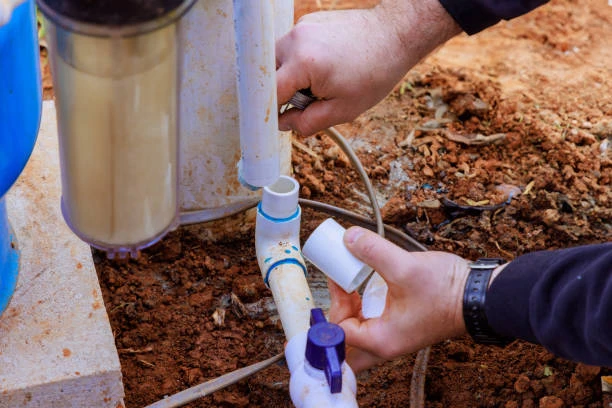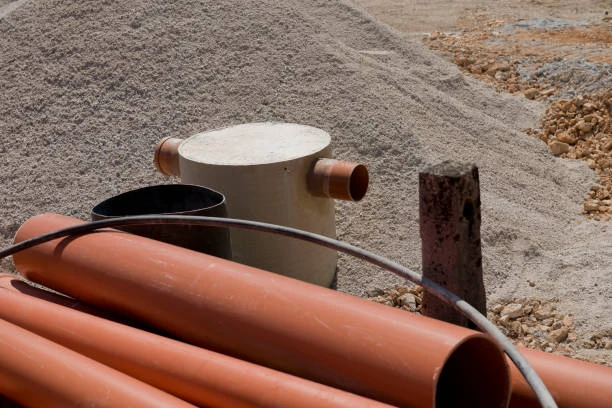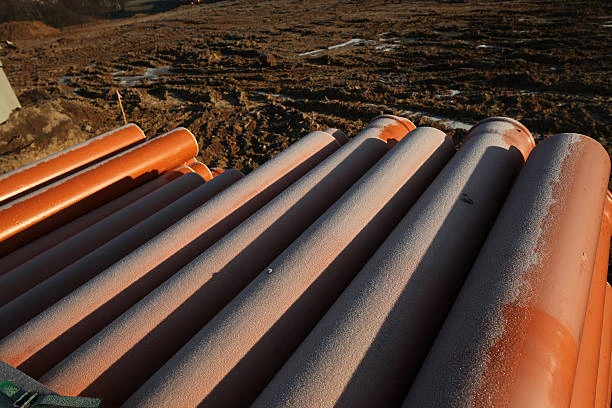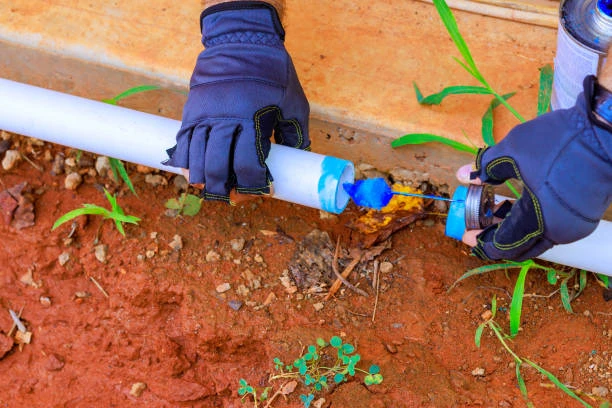Introduction
Uponor’s Quick & Easy (Q&E) Shrink-Fit PEX pipe fitting system is a popular choice for plumbing and radiant heating due to its durability, flexibility, and easy installation. This system uses cross-linked polyethylene (PEX) pipes and fittings, which are ideal for both hot and cold water systems. With its innovative shrink-fit technology, Uponor’s Q&E system creates a strong, leak-proof connection that expands and contracts naturally with temperature changes, ensuring long-term reliability.
In this article, we’ll walk you through the step-by-step process of installing Uponor’s Q&E Shrink-Fit PEX pipe fitting system. Whether you’re a professional plumber or a DIY enthusiast, this guide will help you complete the installation efficiently.
What is the Uponor Q&E Shrink-Fit System?
The Uponor Q&E system uses a unique expansion method to fit PEX pipes over fittings, creating a secure, watertight connection. Unlike crimp or clamp fittings, this system relies on the natural shrinking properties of PEX pipes. When the pipe is expanded and fitted over the barbed connection, it contracts back to its original size, forming a tight, durable bond without the need for clamps or rings.
Components of the Uponor Q&E System
- PEX Pipes: Cross-linked polyethylene (PEX) pipes, available in various sizes and lengths.
- Q&E Expansion Rings: Specially designed plastic rings that expand along with the PEX pipe.
- Uponor Q&E Fittings: Brass or plastic fittings with barbed ends for connection to the PEX pipes.
- Expansion Tool: A tool that temporarily expands the PEX pipe and ring to allow for fitting insertion.
Tools You’ll Need for Installation
Before starting the installation, make sure you have the following tools and materials on hand:
- Uponor PEX pipe
- Uponor Q&E fittings (elbows, tees, couplings, etc.)
- Uponor Q&E expansion rings
- PEX expansion tool (manual or powered)
- PEX pipe cutter
- Measuring tape
- Marker
- Deburring tool (optional)
Step-by-Step Guide to Installing Uponor’s Q&E Shrink-Fit PEX Pipe Fitting System
1. Measure and Cut the PEX Pipe
Start by measuring the required length of PEX pipe for your project. Use a measuring tape and marker to mark the cutting point. Once marked, use a PEX pipe cutter to make a clean, straight cut. Avoid using any tool that may cause jagged edges, as this can compromise the connection.
2. Deburr the Cut End of the PEX Pipe (Optional)
Though PEX pipes often cut cleanly, it’s always a good idea to check the cut end for any burrs or rough edges. Use a deburring tool if needed to smooth the edges. This step ensures a tighter seal and reduces the risk of leaks.
3. Slide the Q&E Expansion Ring onto the PEX Pipe
Next, slide the Q&E expansion ring onto the cut end of the PEX pipe. Ensure the ring is positioned evenly around the pipe and is flush with the pipe’s edge. The ring should be snug but not too tight. This ring will expand alongside the pipe to fit over the fitting.
4. Expand the PEX Pipe and Ring
Using the Uponor expansion tool, expand the PEX pipe and the ring simultaneously. Insert the expansion tool into the pipe and rotate it slightly while expanding to ensure even expansion. Keep expanding until the pipe and ring have expanded enough to fit over the fitting. This step may take a few expansions, depending on the pipe size and tool used.
5. Insert the Fitting into the Expanded Pipe
Once the pipe and ring are sufficiently expanded, quickly insert the barbed end of the Uponor Q&E fitting into the expanded pipe. Make sure the fitting is fully inserted until the pipe reaches the base of the fitting. The PEX pipe will start to contract immediately after expansion, so work swiftly.
6. Allow the Pipe to Shrink Back
Once the fitting is inserted, the PEX pipe will naturally shrink back around the barbed fitting, creating a tight, leak-proof seal. Allow the pipe to fully shrink before applying any pressure to the system. The shrinking process typically takes just a few minutes.
7. Repeat the Process for Additional Connections
Repeat this process for all connections in your system, whether you’re installing elbows, tees, or couplings. The Q&E system allows for quick and easy connections without the need for clamps or additional tools.
8. Pressure Test the System
Once all connections are made, it’s essential to pressure test the system to ensure there are no leaks. Apply pressure to the system and monitor for any drops in pressure or signs of leakage around the fittings. If any leaks are detected, ensure the pipe was expanded evenly and the fitting was inserted fully.
Key Benefits of Uponor’s Q&E Shrink-Fit PEX System
1. Leak-Proof Connections
The Uponor Q&E system creates durable, leak-proof connections without the need for crimp rings or clamps. The shrink-fit technology ensures that the PEX pipe contracts tightly around the fitting, preventing any gaps or leaks.
2. Faster Installation
Compared to traditional methods, the Q&E system allows for faster installation. With fewer tools required and a straightforward expansion process, professionals and DIYers alike can complete projects efficiently.
3. Durability and Flexibility
PEX pipes are known for their flexibility and resistance to scaling, corrosion, and freezing. This makes them ideal for a wide range of plumbing applications, from residential water lines to radiant heating systems.
4. Reduced Risk of Burst Pipes
PEX’s flexibility allows it to expand under freezing conditions, reducing the likelihood of burst pipes. This makes the Q&E system a preferred choice in areas prone to extreme temperatures.
5. No Need for Clamps or Rings
Unlike other PEX fitting systems, the Q&E system does not require additional hardware like clamps or rings. This simplifies the installation process and reduces material costs.

Applications of the Uponor Q&E PEX System
1. Residential Plumbing
The Q&E system is ideal for residential plumbing, offering fast installation and reliable connections for both hot and cold water lines.
2. Radiant Heating Systems
Due to its durability and flexibility, the Q&E system is widely used in radiant heating systems, ensuring long-lasting performance in hydronic heating applications.
3. Commercial Plumbing
The system is also suitable for commercial applications, where large-scale installations benefit from the ease and speed of the Q&E process.
4. Retrofit Projects
Thanks to its flexibility, the Q&E PEX system is ideal for retrofitting existing plumbing systems, offering an easy-to-install alternative to traditional copper pipes.
Environmental Considerations
PEX pipes are highly sustainable due to their long lifespan and resistance to corrosion. Moreover, the Uponor Q&E system reduces waste by minimizing the need for additional components like clamps and rings. The efficiency of the system also translates to lower energy and water consumption during installation.
Conclusion
Installing Uponor’s Q&E Shrink-Fit PEX pipe fitting system is a simple and efficient process that offers lasting, leak-proof connections. Whether you’re a professional plumber or a DIY enthusiast, this system’s ease of installation, durability, and cost-effectiveness make it an excellent choice for both residential and commercial plumbing projects. By following the step-by-step guide above, you can ensure a successful and reliable installation.
FAQs
- What tools do I need to install Uponor’s Q&E PEX system?
You’ll need a PEX expansion tool, pipe cutter, Uponor Q&E fittings, and PEX pipes. The expansion tool is essential for expanding the pipe and ring during installation. - How long does it take for the PEX pipe to shrink back after expansion?
The PEX pipe shrinks back almost immediately after expansion, but it’s recommended to wait a few minutes to ensure a complete and secure fit. - Can I use the Uponor Q&E system for both hot and cold water lines?
Yes, the Uponor Q&E system is suitable for both hot and cold water lines, making it ideal for residential plumbing and radiant heating systems. - Is the Uponor Q&E system more durable than traditional copper pipes?
The Q&E system offers excellent durability and flexibility, with a reduced risk of corrosion and freeze-related damage compared to copper pipes. - Do I need to use clamps or rings with Uponor’s Q&E system?
No, the Q&E system does not require clamps or rings. The shrink-fit technology ensures a tight, leak-proof connection without additional hardware.


















